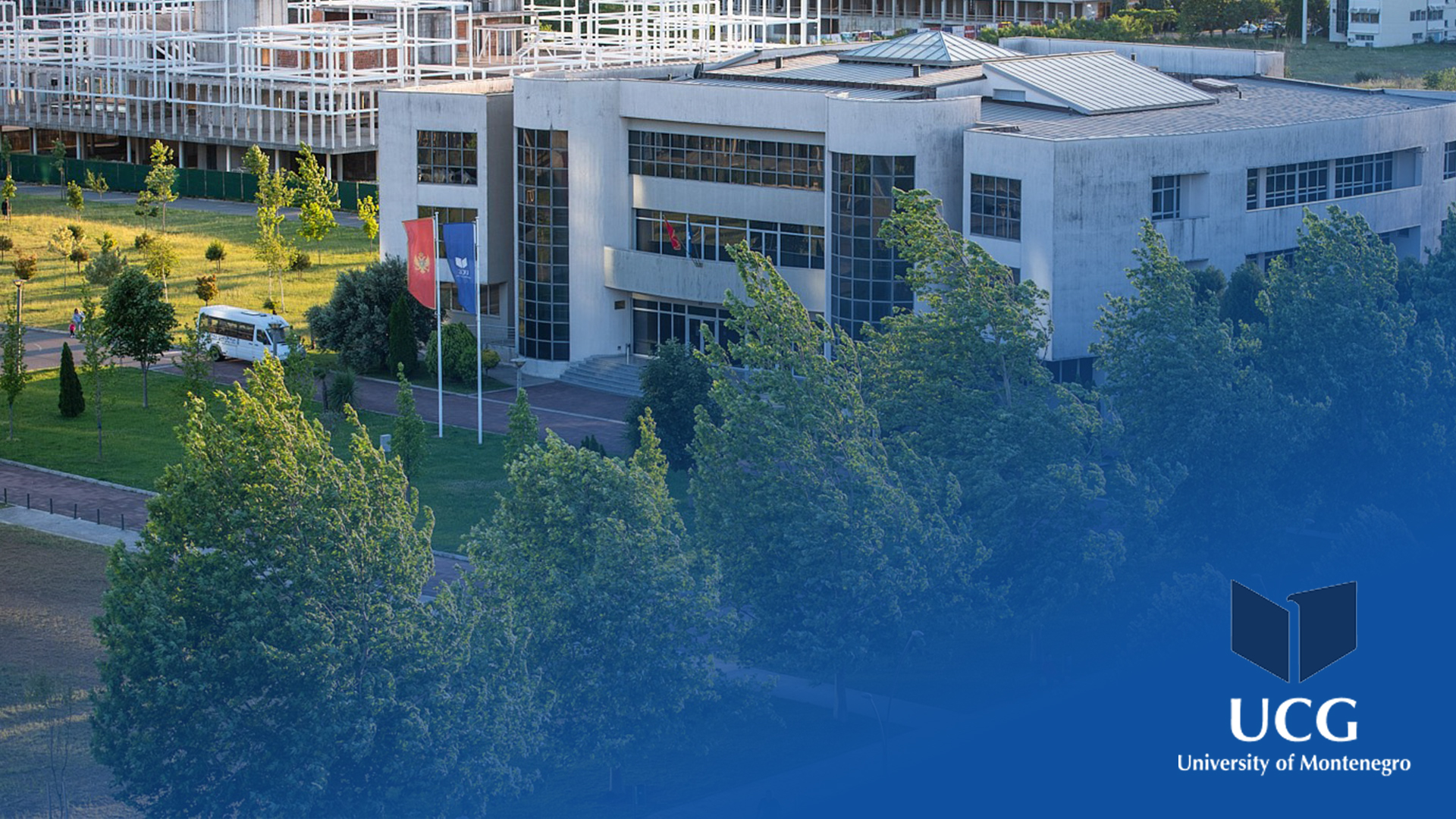
The University of Montenegro is the biggest and the only public university in the country. It was founded in 1974. Since its foundation it has continuously been conducting reforms in the area of education and research, and since 2003 in line with the trends in EHEA. UoM is an integrated university organized as most of the European universities. Today around 22 000 students study at the UoM at 21 faculties and three research institutes.
In view of attaining its mission, UoM is oriented towards the priority social needs of the time in which it accomplishes its mission; open for all the students and staff exclusively based on their knowledge and abilities; dedicated to preservation of multicultural and multi-ethnic society in Montenegro; entrepreneurial in stimulating social and economic application of supreme achievements within the scope of its activities.
Internationalization is high on the agenda of UoM priorities, thus it has participated in a number of international projects – over 50 projects funded under the Tempus programme, over 15 Erasmus Mundus Action 2 projects for student mobility, a number of projects under FP7 funding scheme or IPA supported projects.
UoM is among the leading higher education and research institutions in Montenegro. Academic community of UoM is aware of the importance of its functioning for further development of the state and wider region. It has been so far, and will be in the future, leader in processes of social and cultural changes, along with the economic development.
By participating in different EU funded projects, University of Montenegro has become familiar with different procedures and methods for propagating the project’s knowledge and results.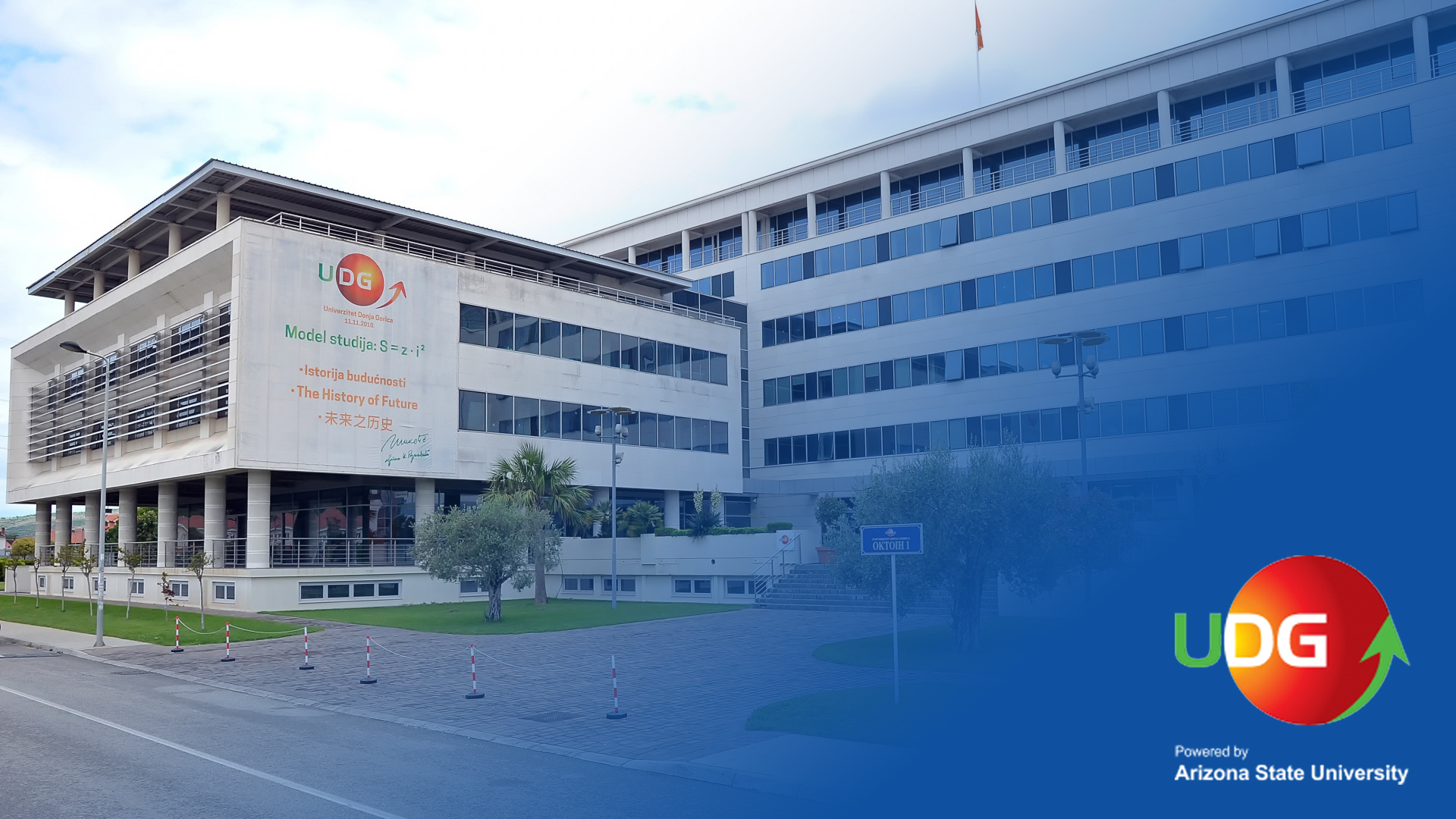
University of Donja Gorica is a research-entrepreneurial university. That is why developing research and entrepreneurship among students is one of the priorities of this University. The vision is implemented through an innovative education philosophy that stresses intellectual and personal development through active learning.
University of Donja Gorica (UDG) is a university whose primary aim is to awake its students with UDG Mision: UDG student - Responsible citizen of a global world! And UDG Motto: Be a part of the History of the Future!
UDG was founded in 2007 with two faculties. It offers courses at both undergraduate and postgraduate level of education, including Bachelor, Master’s and PhD level of studies. Currently, it has around 3500 students and around 300 professors from whole world. Today, UDG includes twelve faculties and more then 50 programs.
UDG is an active international university engaged in worldwide collaboration projects and partnerships. UDG has participated in over 50 different international projects including Horizon2020, IPA, COST, EFSA, Erasmus+, Tempus, Eureka, World Bank grants and many others). Similarly, we tend to be the University which creates new markets rather than adopting to today’s market. On that idea we establish “Entrepreneurial Nest”, with 70 positions for student company’s development, and great investments in laboratories for students’ research work (Laboratory for food quality and safety, Laboratory for chemical analyses, 3D Laboratories, IT laboratory, Design...).
University of Donja Gorica (UDG) Joins Global Alliance and Partners with America’s Most Innovative University to Become Center for Innovation, Transformation, and Internationalization in the Balkans Region. Powered by Arizona State University, UDG joins the Cintana Alliance to provide Montenegro and Balkans students with access to world-class degree programs and cutting-edge research.
The key goal of this cooperation is to develop the UDG as a research-entrepreneurial university, that is, to contribute, that the university is not only educational, but an institution that integrates education, research and development, an institution that in the future should be one of the key drivers of the development of the community in which it lives and works.
More information about UDG you can find on the website: www.udg.edu.me/en/ 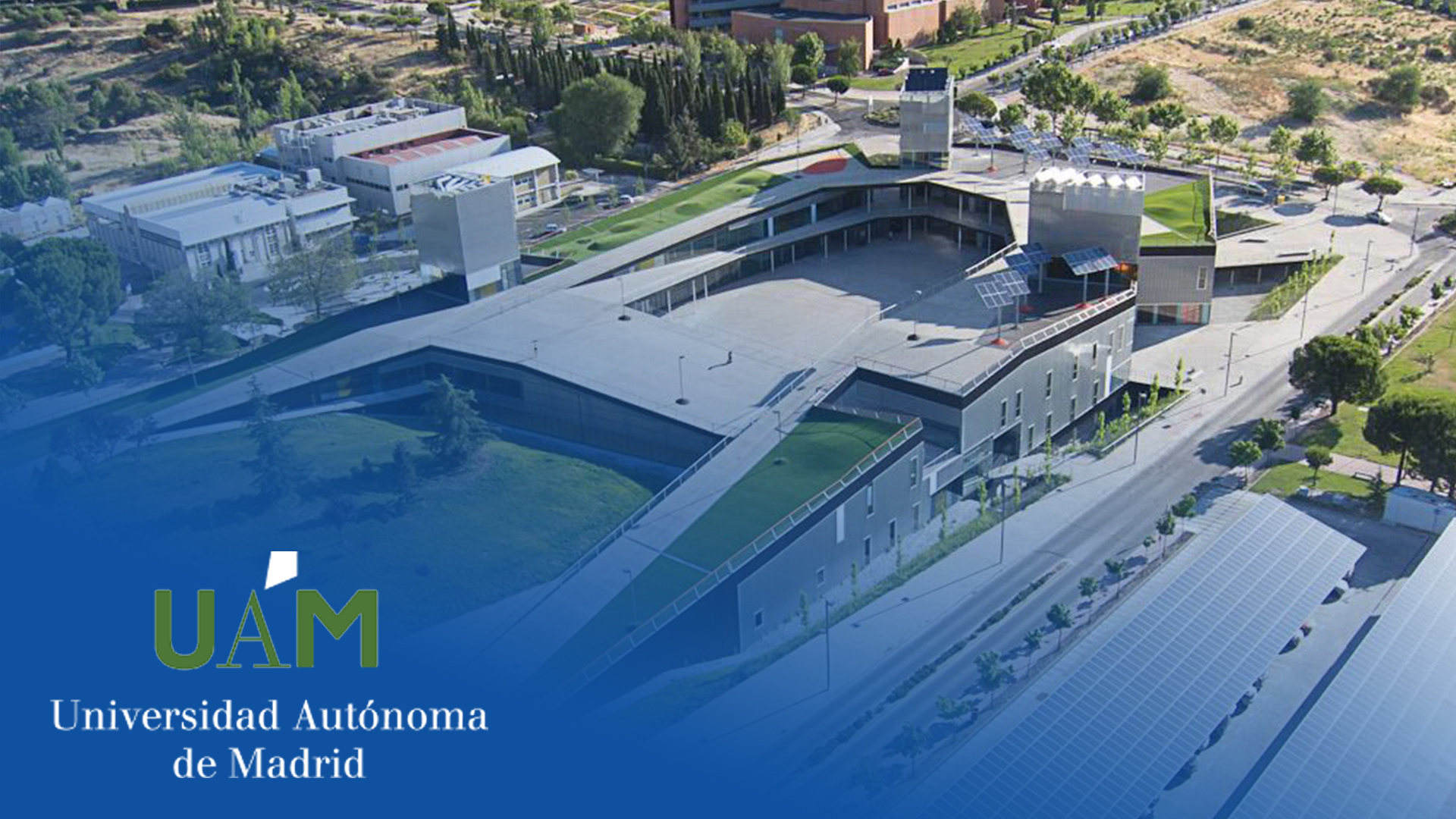
UAM is a public comprehensive university. It’s identity is rooted in a strong social commitment through specific actions and structures that have evolved since UAM creation 50 years ago. That is an European University devoted to widen its impact beyond the academy, transparent, accountable and well-managed, making use of innovative methodologies encompassing society demands.
UAM attracts, at least in some fields, a number of outstanding, talented and socially-engaged students. All of their activities are based on values cultivated along decades: the pride to be public, to be research-oriented, to have clear social commitment; to be sustainable, healthy, and concerned with the continuous improvement of education quality. They are devoted to the dissemination of research results not only to student education but also to the society as a whole: they truly believe that knowledge transfer is the best tool to boost social and economic development.
UAM is also internationally oriented, focus on collaborative partnership with institutions aimed not merely at assuring students and staff exchange and mobility, but mainly at building common specific projects, for education and research improvement as well as SDG cooperation. Their allies span from culturally and geographically closer Latin America or North Africa countries to distant East Asia or sub-Saharan Africa.
Undoubtedly, this wide and global research and innovation area will contribute by sharing research infrastructures to enhance our productivity and by actively participating in future applications directed to complement our facilities with cutting-edge technology. Considered as the first young Spanish university and the third in Europe -QS Top 50 Under 50-2018- UAM is confidently facing the new academic and research landscape.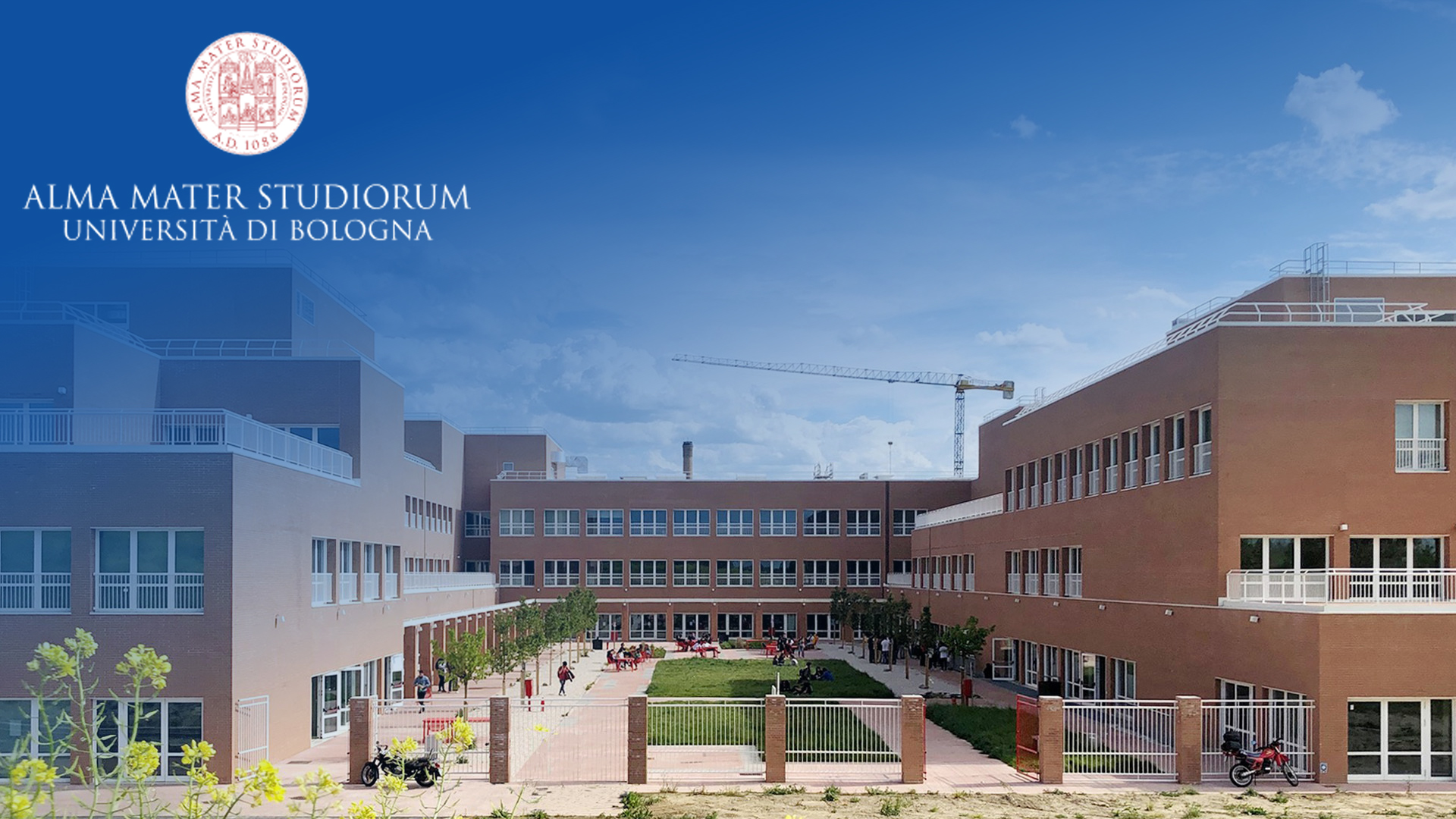
Over the years, the Alma Mater Studiorum – Università di Bologna, the oldest university in the Western world, has paved the way for innovation thanks to an increasingly rich programme catalogue, cutting-edge research, a convincing third mission strategy and a growing international perspective.
Since its foundation in 1088, the University of Bologna has been student-centred, and, thanks to its five campuses (in Bologna, Cesena, Forlì, Ravenna and Rimini) and its Buenos Aires branch, it offers its student a varied course catalogue that is tailored to the needs of present-day society: over 250 degree programmes within its 32 departments and 5 schools.
Its community of more than 90,000 students makes the Alma Mater one of Italy’s largest universities, ranking first in Italy in terms of number of its students in exchange programmes abroad and within the top 5 universities in Europe in terms of number of exchange students. Moreover, the University of Bologna is among the top 5 Italian universities in major international rankings (Shanghai, Times Higher Education, GreenMetric).
The University of Bologna is deeply committed to sustainable development and actively contributes to the achievement of the 17 sustainable development goals of the UN’s 2030 Agenda. As a comprehensive research university, the Alma Mater invests in multidisciplinary cross-cultural approach to research and teaching, which are considered as inseparable parts of the same unit. In the European landscape of research and academic cooperation, the University of Bologna is surely among the most active institutions. Indeed, it has shaped and maintains alliances with industries as well as public/private organizations, and also represents a crucial hub for international networks with its lively relations with America, Africa, Asia and Australia, that add up to its great networks in Europe. In fact, it is one of the founders of the prestigious Una Europa alliance, which is striving to build the integrated university of the future.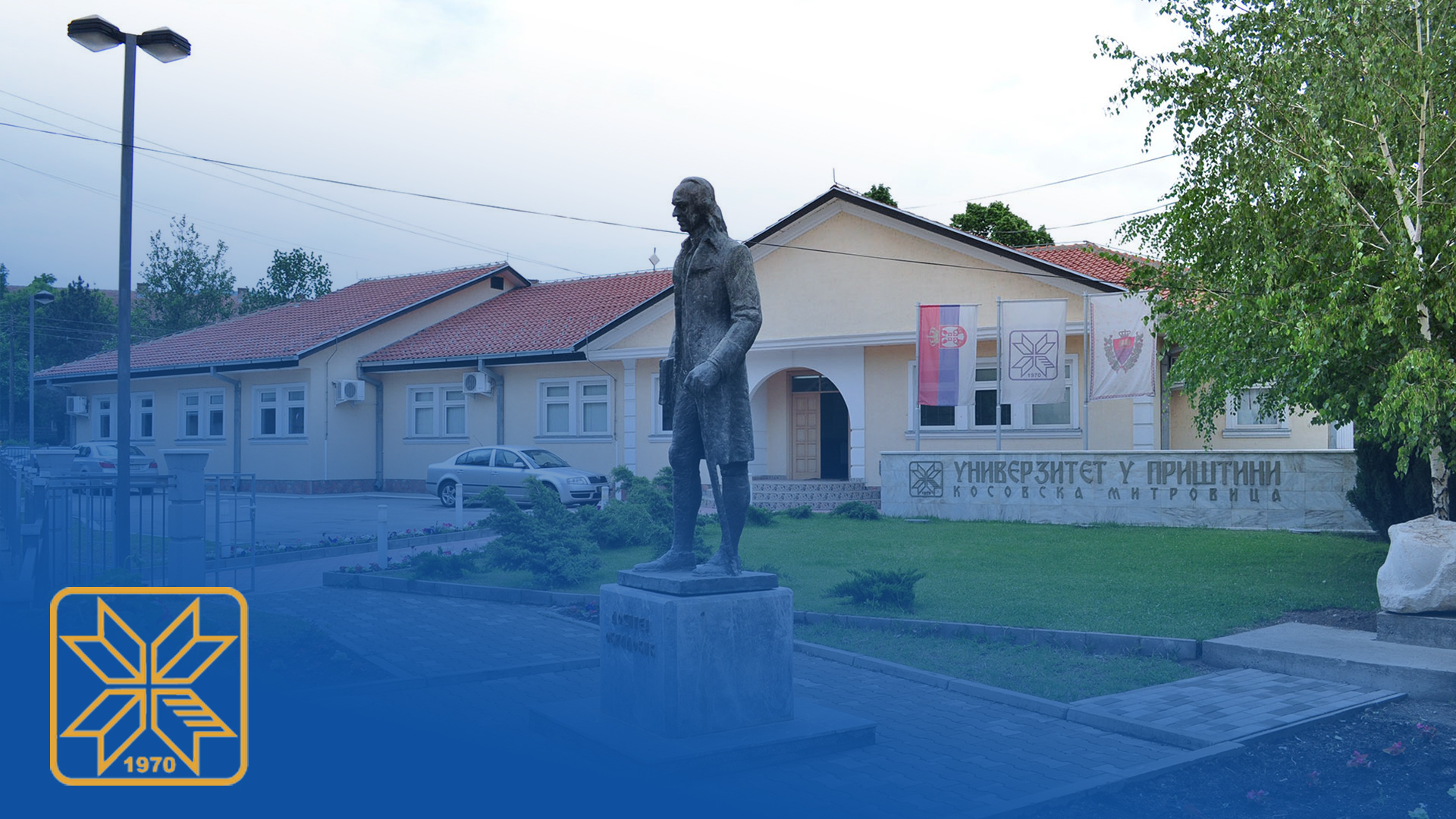
The University of Pristina was founded on 18 November 1969. At that point, according to legal requirements, the University established courses in the Serbian as well as the Albanian language.
When founded, the University of Pristina consisted of 14 faculties, twelve of which were located in Pristina. Due to the continuous expansion of its faculties, the forming of a wide range of courses and degrees, and the establishment of fully adequate conditions for undergraduate, graduate, and doctoral students alike, the University of Pristina was able to develop into one of the most prestigious universities in Serbia.
This was not always discernible. During the war in 1999, around 1,500 professors, administrators and other employees of the University in Pristina, together with 16,000 students (whose lessons were in Serbian), were expatriated and evicted from the University. Their property was usurped and their return has never been made possible. After the exile from Pristina, the University and a few other faculties have been temporarily relocated. As a result of a governmental resolution of the Republic of Serbia at the end of 2001, the university resettled in Kosovska Mitrovica, which has been its temporary settlement since then. Gradually, all faculties have returned to Kosovo and Metohija. In spite of the past difficulties and turbulences, our university has consolidated and succeeds in doing its best: providing young people with high quality education and a proper perspective for the future.
Today the University can be correlated, and even equated with other European universities.
The University has the status of a state university, as a comprehensive/multidisciplinary university, and comprises ten Faculties. The University has adopted the Bologna agenda and a three-cycle system of studies was introduced in 2006. Almost all scientific disciplines (with the exception of the political sciences) are covered at the University, as well as three levels of studies (BA, MA and PhD), which are covered at 10 different faculties and 101 study programs. Currently, there are around 9.000 students, 721 academic staff, and 336 non-academic staff.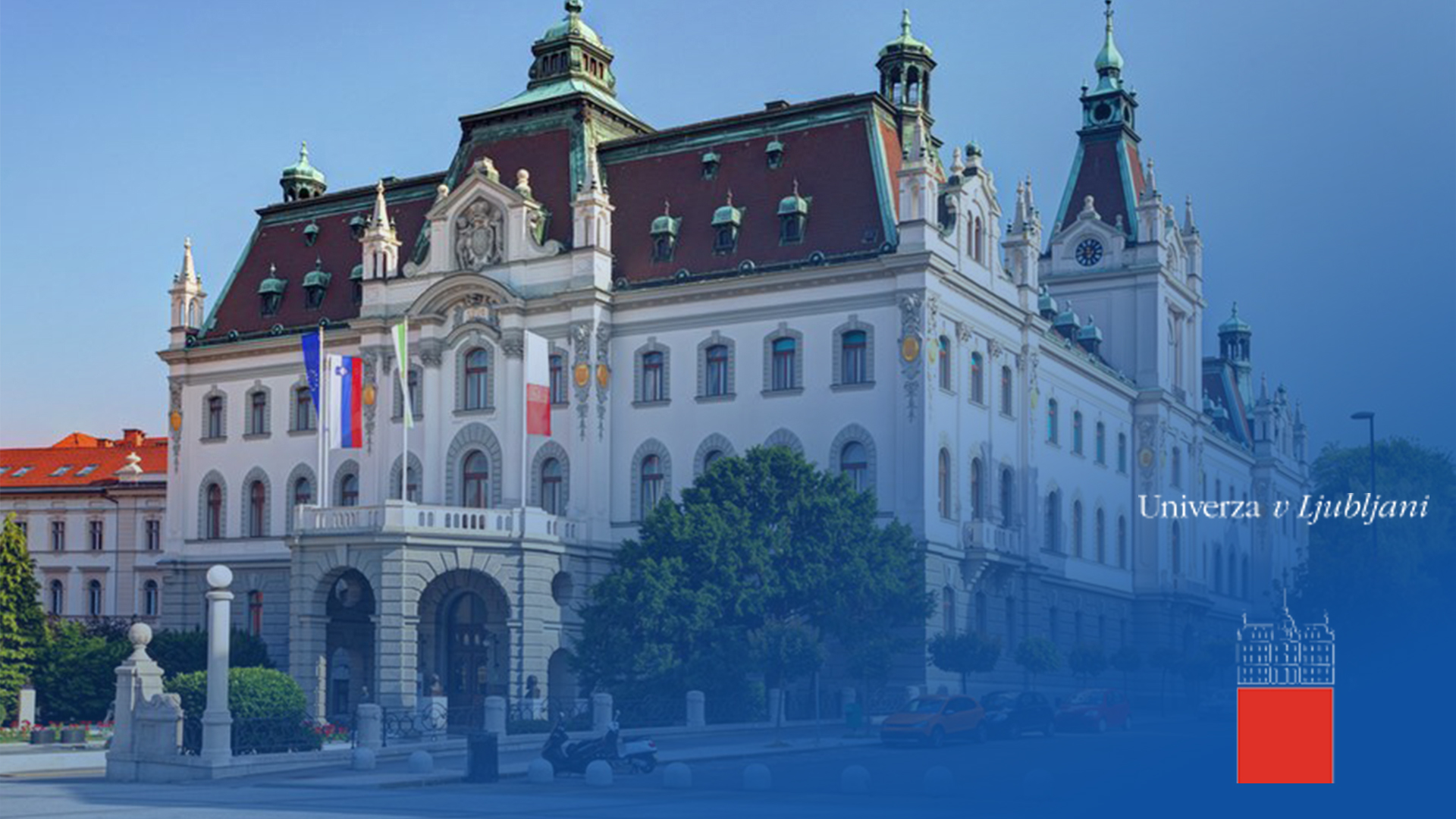
University of Ljubljana is the oldest and largest higher education and scientific research institution in Slovenia. University with its rich tradition was founded in 1919. It has approximately 40,000 undergraduate and postgraduate students and employs approximately 6,000 higher education teachers, researchers, assistants and administrative staff in 23 faculties and three arts academies. The central building, all three academies and faculties are located in the centre. Some of the most recent and modern buildings were constructed on the outskirts of Ljubljana, giving the university and its students a ubiquitous presence in the city.
The University of Ljubljana is renowned for its quality social and natural sciences and technical study programmes, structured in accordance with the Bologna Declaration. Our projects keep pace with the latest developments in the areas of arts, sciences and technology at home and abroad.
The University of Ljubljana has been ranked among the top 500 universities by the prestigious Academic Ranking of World Universities (ARWU); it is placed 416th in The Center for World University Rankings (CWUR), listed in the 801-1000 group in the Times Higher Education (THE) ranking, and the 591-600 group in the Quacquarelli Symonds ranking.
The University of Ljubljana is the central and largest educational institution in Slovenia. It is also the central and largest research institution in Slovenia with 30 percent of all registered researchers (according to the data from the SICRIS database).
The University takes a central pedagogical position by performing public services in the areas of special social importance, which ensure the preservation of the national identity.
The University of Ljubljana has close ties with Slovenian companies and foreign enterprises. Their partners include multinational corporations and the most successful Slovenian companies. As they are fully aware of the importance of knowledge and skills in obtaining their own financial sources, they are increasingly developing their market-oriented activities every year.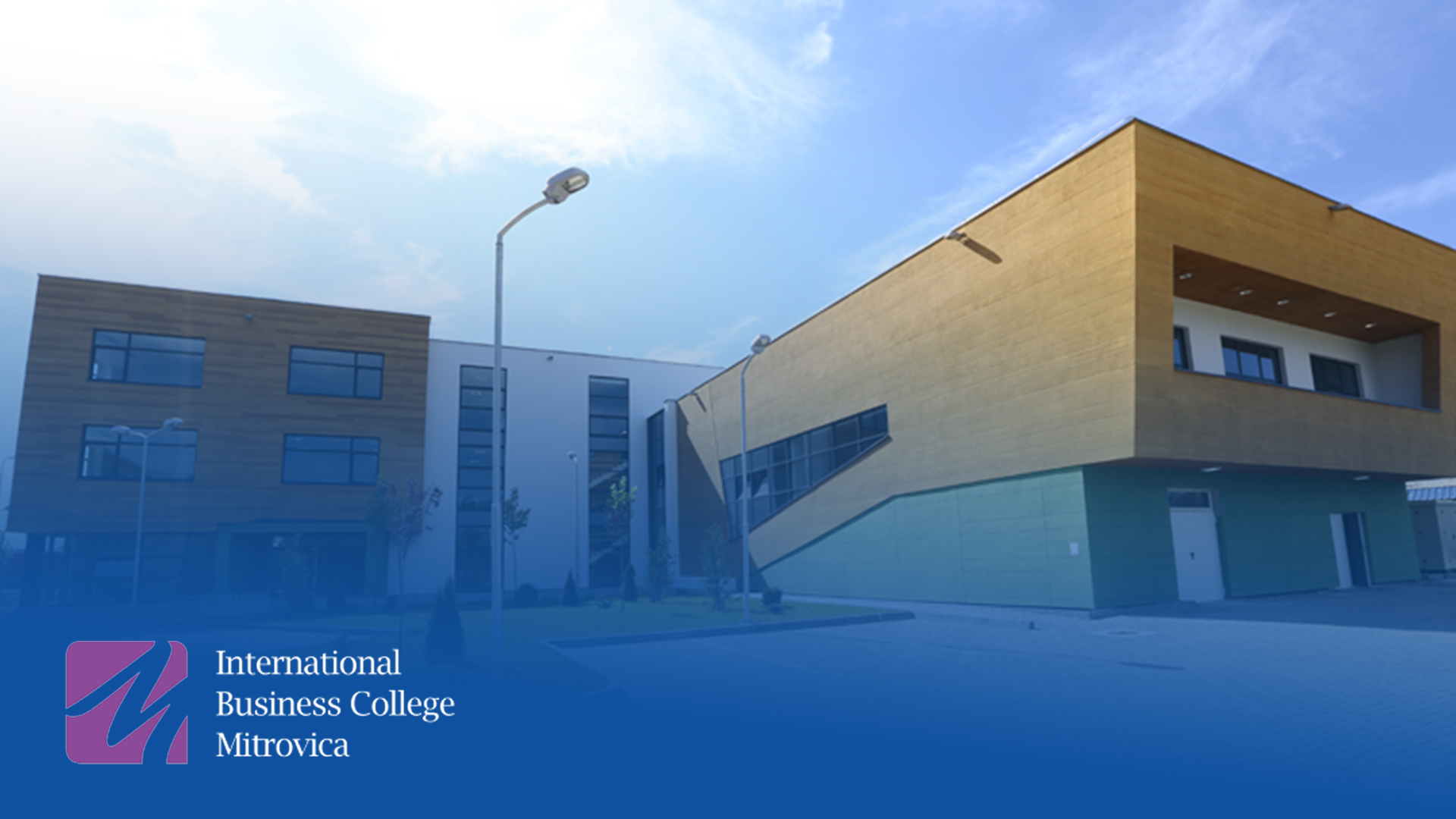
The International Business College Mitrovica (IBC-M) is based in the town of Mitrovica in Kosovo, at the centre of the Balkan region’s most pressing social, economic and environmental challenges. Located near the widely known Trepca mine, the tension between profit and prosperity, lack of scalability for imperative business in a healthy Economy, society and environment, all come together in the Mitrovica region, symbolizing much of the wider struggles of the Western Balkans. IBC-M is an educational institution of higher education, which offers practice-oriented professional education. It is at present the only inter-ethnic higher educational institution in Kosovo and one of the most successful international efforts to include the Kosovo Serbian community in North Kosovo. IBC-M was founded in 2010 with the aim of improving employability through study programmes with a heavy focus on practice and skills, supporting economic development in the region and bridging the ethnic groups in Mitrovica.